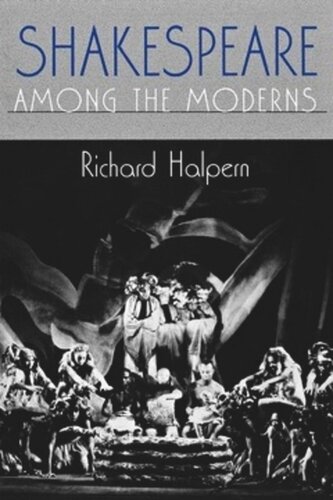

Most ebook files are in PDF format, so you can easily read them using various software such as Foxit Reader or directly on the Google Chrome browser.
Some ebook files are released by publishers in other formats such as .awz, .mobi, .epub, .fb2, etc. You may need to install specific software to read these formats on mobile/PC, such as Calibre.
Please read the tutorial at this link: https://ebookbell.com/faq
We offer FREE conversion to the popular formats you request; however, this may take some time. Therefore, right after payment, please email us, and we will try to provide the service as quickly as possible.
For some exceptional file formats or broken links (if any), please refrain from opening any disputes. Instead, email us first, and we will try to assist within a maximum of 6 hours.
EbookBell Team

4.3
58 reviewsModernist writers, critics, and artists sparked a fresh and distinctive interpretation of Shakespeare's plays which has proved remarkably tenacious, as Richard Halpern explains in this lively and provocative book. The preoccupations of such high modernists as T. S. Eliot, Wyndham Lewis, and James Joyce set the tone for the critical reception of Shakespeare in the twentieth century. Halpern contends their habits of thought continue to dominate postmodern schools of criticism that claim to have broken with the modernist legacy.Halpern addresses such topics as imperialism and modernism's cult of the primitive, the rise of mass culture, modernist anti-semitism, and the aesthetic of the machine. His discussion considers figures as diverse as Orson Welles and Arnold Schwarzenegger, and Shakespeare critics including Northrop Frye, Cleanth Brooks, Stephen Greenblatt, and Stanley Cavell.
Shakespeare's works have been subjected to a continuing process of historical reinterpretation in which every new era has imposed its own cultural and ideological presuppositions on the plays. The most enduring contribution of modernism, Halpern suggests, has been the juxtaposition of an awareness of historical distance and a mapping of Shakespeare's plays onto the present. Using modernist themes and approaches, he constructs new readings of four Shakespeare plays.